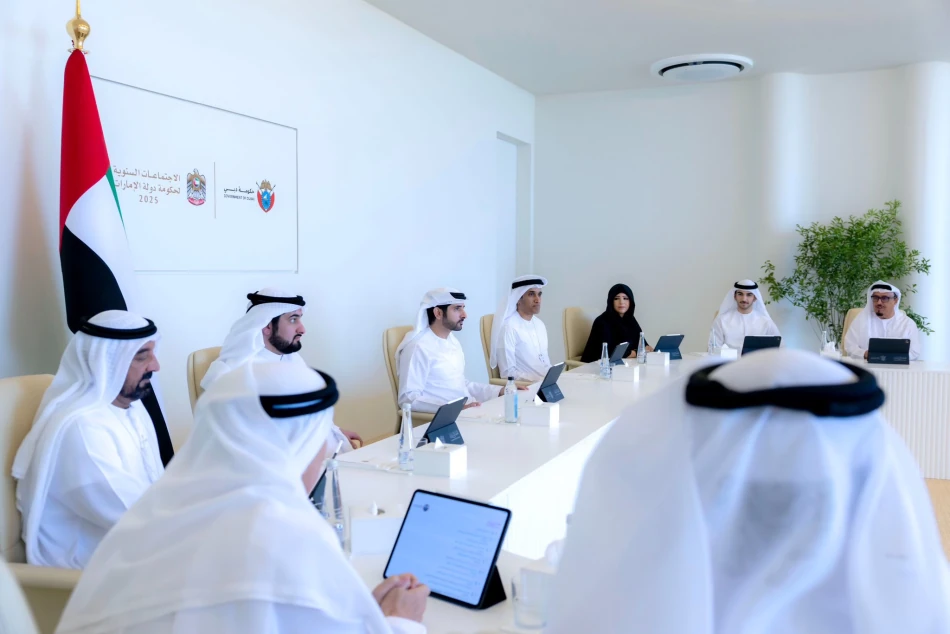
Dubai Crown Prince Chairs Executive Council's Annual Meeting, Propelling UAE Government's Agenda
Dubai's Crown Prince Sheikh Hamdan bin Mohammed bin Rashid Al Maktoum announced a series of major initiatives aimed at making Dubai the world's most beautiful and advanced city. The plans include tripling the emirate's tree count, creating over 630 parks, launching a massive aviation talent program, and establishing new financial courts—all part of Dubai's 2033 strategic vision.
Speaking at the Dubai Executive Council meeting during the UAE Government's Annual Meetings 2025, Sheikh Hamdan outlined how these projects will transform Dubai into a model future city that balances human welfare with urban sustainability. The initiatives directly support Dubai's Economic Agenda D33 and Social Agenda 33, which aim to double the economy and attract 650 billion dirhams in direct investment.
Green Dubai: A City of Parks and Trees
The most ambitious project is Dubai's new forestry and parks strategy. By 2040, the emirate plans to triple its current tree count and create a network of over 630 parks through more than 800 individual projects.
Here's what makes this interesting: 80% of Dubai residents will live within a 5-minute walk of a neighborhood park and a 10-minute bike ride from a regional park. The strategy includes 310 new parks, upgrades to 322 existing ones, and complete tree coverage along 100% of road corridors.
The project targets 95 million annual park visits and will use 100% recycled water for irrigation. Each resident will have access to 11 square meters of green space, with the total green area covering 187 square kilometers.
Aviation Talent Hub
The "Aviation Talents 33" initiative positions Dubai to capture more value from its massive aviation sector. The program will create over 15,000 job opportunities and 4,000 training positions while establishing partnerships with more than 30 global aviation companies.
This move comes as Dubai prepares for Al Maktoum International Airport to become the world's largest airport. The initiative focuses on developing local Emirati talent across all aviation specialties—from operations to logistics—supporting the UAE's broader economic localization goals.
For investors and aviation companies, this represents a significant opportunity. Dubai already operates one of the world's largest aviation sectors, and this talent pipeline could strengthen its competitive advantage as global air travel continues growing.
Affordable Quality Education
Dubai approved new policies to attract 60 good-quality schools with reasonable fees by 2033, adding around 120,000 new student seats. The emirate currently educates about 400,000 students from various nationalities in its private schools.
The policy offers incentives to education investors, including reduced land rental rates for educational plots. It also aims to provide affordable housing for teachers near school areas, which could help with staff retention—a common challenge in international education markets.
This strategy aligns with Dubai's goal to rank among the world's top 10 cities for education quality, potentially making it more attractive to international families and businesses considering relocation.
Sports and Financial Infrastructure
Dubai's 2033 sports strategy includes 19 programs and 75 initiatives across 17 priority sports. The plan focuses on four pillars: attracting world-class events, supporting clubs, developing local talent, and encouraging community participation.
On the financial side, Dubai established a new Financial Restructuring and Bankruptcy Court to handle debt restructuring and insolvency cases. This specialized court aims to speed up legal processes and protect creditor rights while helping businesses avoid liquidation.
The financial court supports Dubai's ambition to rank among the world's top 3 financial centers. For businesses and investors, this could mean faster resolution of financial disputes and better protection during economic downturns.
Healthcare Expansion
The emirate expanded its early detection health services for citizens, targeting a 40% increase in early colorectal cancer screening and 50% growth in vaccination services. The program aims to reduce chronic diseases, which account for 52% of deaths, while achieving over 90% patient satisfaction rates.
These health initiatives support Dubai's goal of reaching a healthy life expectancy ranking among the world's top 10. The focus on preventive care could reduce long-term healthcare costs while improving quality of life for residents.
All these projects feed into Dubai's broader vision of becoming a comprehensive future city that attracts global talent while developing local capabilities. The integrated approach—combining environmental sustainability, economic diversification, and social development—reflects Dubai's strategy to maintain its competitive edge as other cities worldwide compete for similar positioning.
Most Viewed News

 Sara Khaled
Sara Khaled






